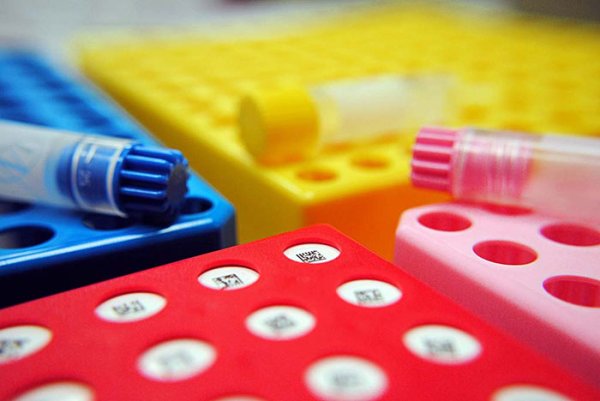External Quality Assurance – The devil is in the detail
3 MARCH 2016
We examine the role of the WorldWide Antimalarial Resistance Network (WWARN)’s External Quality Assurance (EQA) programme in providing research evidence to support international efforts to fight antimalarial drug resistance.

Laboratory tests to detect, characterise and quantify various parasite, host and drug-related parameters are an essential component of research on the efficacy of antimalarial drugs and surveillance for markers of resistance. Here, we examine the role of the WorldWide Antimalarial Resistance Network (WWARN)’s External Quality Assurance (EQA) programme in providing research evidence to support international efforts to fight antimalarial drug resistance.
WWARN is a global platform that provides research evidence to support international efforts to fight antimalarial drug resistance. An overall objective is to help ensure that all malaria patients receive effective and safe drug treatment.
This is a challenging and complex task because resistance of the malaria parasite is not the only reason that a patient may not be cured. The therapeutic failure may result from reduced drug exposure due to poor drug quality, inadequate dosing, vomiting, and/or poor absorption. Both accurate and precise measurements of in vivo drug concentrations, and comparison of the genotypes of parasites before and after treatment, are therefore critical for the assessment of antimalarial therapeutic efficacy and essential to assess how well a drug treatment has worked. This combination ensures that inadequate drug exposure can be distinguished from treatment failure due to drug resistance. The actual concentration of the antimalarial drugs must also be characterized in all key subgroups of patients to make sure that all patients receive the correct dose of the drug.
WWARN’s pharmacology External Quality Assurance (EQA) programme was established in 2009 to standardise and harmonise antimalarial drug measurements between different laboratories and has been central to research activities since WWARN’s inception. It provides the necessary tools for quality assurance of all trial activities and ensures that pharmacology data generated around the globe are reliable and of a high standard. In so doing, the programme is able to support accurate characterisation of individual and population blood concentration profiles performed in different laboratories. When all laboratories are measuring the concentrations accurately in different patient groups, it is possible to distinguish treatment failures due to parasite resistance from those that result from under-dosing, and facilitate the identification of optimal antimalarial drug and dosing regimens.
The EQA programme has two core components: an international proficiency testing (PT) programme for pharmacology laboratories; and a reference material (RM) programme for the provision of antimalarial drug standards, metabolites, and internal standards for laboratory use.1 Currently, the RM programme distributes accurately weighed quantities of antimalarial drug standards, metabolites, and internal standards to 60 pharmacology, in vitro, and drug quality testing laboratories. To date, the pharmacology PT programme has sent samples to 12 laboratories in five rounds of testing.
An evaluation over five rounds of the PT of antimalarial drug measurement in the participating laboratories showed a 41% improvement in overall results and an improvement in performance scores for all laboratories.2 In addition, WWARN technical experts have provided advice for correcting identified problems to improve the accuracy of subsequent analysis and ultimately improve the quality of data.
Informing optimal antimalarial choice and dosing requires the global cooperation of researchersactive in antimalarial pharmacology to define therapeutic drug concentrations and facilitate a better understanding of the patient, dosing and disease factors that affect the efficacy and safety of antimalarial medicines.
WWARN collaborates with experts from around the world to provide tools and step-by-step guides for malaria researchers, covering different aspects of the implementation of antimalarial drug efficacy assessments. These are freely available on the WWARN website and include procedures for malaria microscopy in research settings, appropriate specimen collection and initial processing for pharmacokinetic, genomics or genotyping, transcriptomics and in vitro analyses.
WWARN also provides tools that enable researchers to produce standardised reports of parasite clearance assessments, in vitro drug susceptibility testing, and overall drug efficacy estimates. Many of WWARN’s open access procedures are now adopted as standard by the malaria research community and are used to facilitate the comparison of results from studies undertaken in diverse regions at different times.
The EQA team, based at WWARN’s Asia Regional Centre, coordinated the standardised collection, preservation, shipment, and initial characterisation of samples for the Tracking Resistance to Artemisinin Collaboration (TRAC) study, a major international multi-centre trial which contributed to the in vivo validation of P. falciparum kelch13 as a marker for artemisinin resistance. The team’s robust system for specimen management meant that clinical data and specimens collected across sites in multiple countries could be linked with results generated in collaborating laboratories worldwide.
The group members are currently responsible for microscopy and quality assurance of specimen collection and processing for TRAC II, the second iteration of the TRAC project that will monitor any further emergence of drug resistance. TRAC II will also investigate the safety, tolerability and efficacy of Triple Artemisinin-based Combination Therapies (TACTs) for the first time.
WWARN’s proactive approach to standardising and assuring prospective data collection, combined with its experience in collaborating with research institutions worldwide, provides the Network with a unique perspective on what is required to generate reliable evidence on the efficacy of antimalarial medicines.
- Implementation of a reference standard and proficiency testing programme by the World Wide Antimalarial Resistance Network (WWARN). Lourens C, Watkins WM, Barnes KI, Sibley CH, Guerin PJ, White NJ, Lindegardh N. Malar J. 2010 Dec 25;9:375
- Lourens C, Lindegardh N, Barnes KI, et al. Benefits of a pharmacology antimalarial reference standard and proficiency testing program provided by the Worldwide Antimalarial Resistance Network (WWARN). Antimicrob Agents Chemother 2014;58:3889-94.
- Ashley EA, Dhorda M, Fairhurst RM, et al. Spread of artemisinin resistance in Plasmodium falciparum malaria. N Engl J Med 2014;371:411-23.




